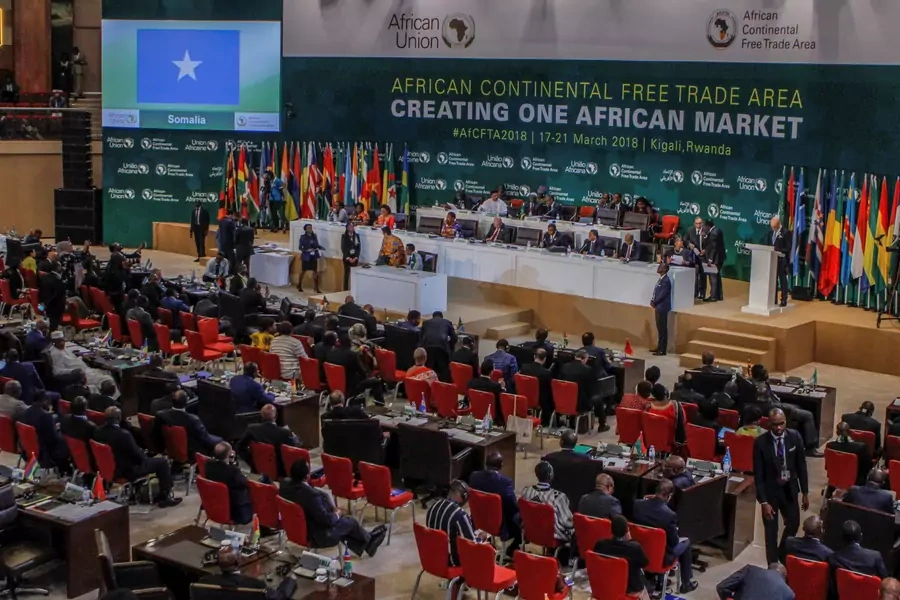Africa's Free Trade Deal Signed in Kigali

In Kigali on March 21, more than forty African nations signed a deal to create the African Continental Free Trade Area. The dream is of a free trade area from the Cape of Good Hope to the Mediterranean Sea that encompasses some 1.2 billion people and that will boost trade and development. At present, according to the media, the average tax on intra-African imports is 6 percent, often making it cheaper to import goods from outside Africa. Only about 16 percent of Africa’s trade is between countries on the continent. The hope is that once the pact is in place, the proportion of inter-African trade will jump to more than 50 percent. The pact goes into effect once it has been ratified by twenty-two countries.
In sub-Saharan Africa, loyalties tend to be to family, ethnicity, religion, and to the continent as a whole rather than to a particular nation-state. This is partly because national boundaries, with only a few exceptions, were established by the colonial powers in the nineteenth and twentieth centuries. Pan-Africanism in particular is a deeply and widely felt sentiment among the elite, and the establishment of continent-wide free trade area primarily reflects their aspirations.
More on:
Eleven countries, however, have not signed, but Albert Muchanga of the African Union Commission, which oversaw the negotiations, believes that following more consultations at home, many or most will join.
Two of those that have not signed, however, are the continent’s economic powerhouses, South Africa and Nigeria. The two together are one-third of Africa’s gross domestic product and more than twenty percent of the continent’s total population. South African President Cyril Ramaphosa was in Kigali and committed to a free trade area but declined to sign until relevant laws and regulations are in place. Nigerian President Muhammadu Buhari cancelled his travel to Kigali, apparently because his administration wants more time for consultation with the business community and with organized labor. According to Nigerian media, the Nigeria Labour Congress is opposed, calling the deal a “radioactive neoliberal policy initiative” that opens Nigeria to “unbridled foreign interference never before witnessed in the history of the country.”
Ramaphosa and Buhari will face competitive national elections in 2019 and they may delay joining the pact until after they have been held.
More on:
 Online Store
Online Store
